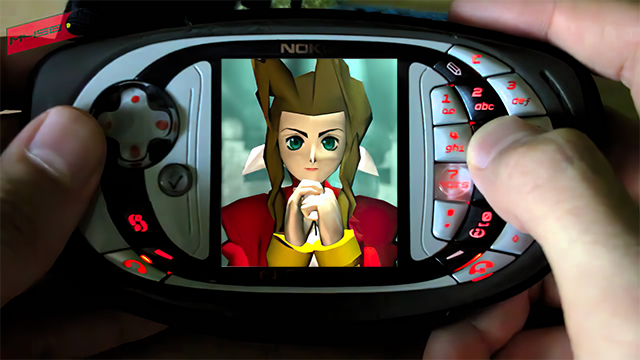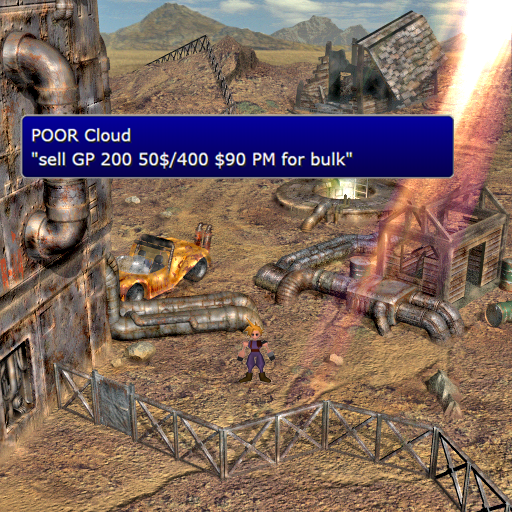We finally got news on the Final Fantasy 7 remake after a long period of radio silence from Square Enix, and the game has seen some fundamental changes since last we saw it. Square has switched gears almost entirely and is predominantly creating the game for mobile platforms now, citing the ease of monetization and large install base as the reasons for its decision. Alongside the announcement of the platform change, we got our first real look at how Final Fantasy 7 remake will play and how the original’s systems will carry over.
New Final Fantasy 7 remake release and season pass details
The developers on the Final Fantasy 7 remake previous hinted that the title would span multiple entries or episodes. This has been confirmed in the recent announcement. Final Fantasy 7 remake will span 36 chapters, each available for $5.99 each or as a $100 bundle.
Unfortunately, even with the bundle, your progress won’t transfer between episodes by default. Instead, Square Enix has partnered with EA to create a new physical season pass players will be able to purchase to save their progress. Square said:
“To ensure a smooth experience across all platforms we’ll be offering an NFC card which you can scan using a compatible device to load your save data into the Final Fantasy 7 remake no matter how or where you decide to play it. We’re calling it a ‘memory card,’ and we believe it will revolutionize the mobile experience.”
The physical Final Fantasy 7 remake season pass will be available for $29.99 for the initial purchase and $5.99 a month afterward. Square warns that saves will be erased if the pass isn’t renewed each month.
Final Fantasy 7 remake microtransaction details
While Square Enix says, you’ll be able to play the Final Fantasy 7 remake from start to finish with just the initial purchase, some game systems are only available to those who choose to partake in the game’s microtransaction system. While final pricing isn’t set yet, for now the exchange is 1:1.
Default physical attacks will be unlocked for all players, but Materia and Summons will have to be obtained via premium currency or grinding. You’ll be able to get Materia in two ways. You can get “Materia Pieces” as rare drops during battles, which can then be used to synthesize a whole Materia using “Synthebux” which are sometimes dropped by enemies in small quantities or can be purchased for real money in-game.
Summons work on a loot box basis. You’ll find parts of summons in loot boxes you can win at the Gold Saucer or purchase “GP” premium currency and buy them in the in-game premium shop. Once you’ve gotten enough pieces to complete a summon you can bring forth one of the powerful monsters to attack your enemies using “Summon Stones,” which can be earned as a bonus each month if you have the season pass, or you can purchase them using GP in the in-game premium store.
Chocobo racing has also been expanded. This time around you can race Chocobos to win GP or even bet GP like a real-life horse race. Raising your Chocobo has never been more realistic in a Final Fantasy game. You’ll need to rent a stall for each Chocobo using GP, and purchase food, water, nutritional supplements, equipment, and more using the “Chocobux” premium currency.
Chocobos will require your constant attention as you raise them to race at the Gold Saucer. Square says, “We want raising a Chocobo to be like raising a real animal. Your investment in both time and money will affect your feathered friend, and we believe people will appreciate the attention to detail we’ve paid with our revamped Chocobo raising and breeding segments in Final Fantasy 7 remake.”
Because of its dedication to making the Chocobo racing experience feel authentic, in-game pricing will be similar to what you would see for an equivalent animal in the real world. It will cost around 100 Chocobux per day to house each Chocobo. You can save some money by feeding and training the Chocobo yourself, but you’ll have to pay approximately 300 Chocobux per month to feed your little pal. You’ll also have to pay to have your Chocobo race certified and be on the lookout for random health events that can affect your bird. Make sure you have enough Chocobux saved to cover the costs, or Shinra may auction your Chocobo to cover your fees.
Another new feature present in Final Fantasy 7 remake is the “Destitute” status effect. If you run out of premium currency, you’ll have to take a position as an NPC. This is part of Square’s new initiative to improve NPC dialog and response into something a bit more lifelike. Square says, “If a player finds themselves without the means to enjoy the game, they can either purchase GP in-game or choose to role-play as an NPC. This not only gives them the opportunity to enjoy the sense of pride and accomplishment that comes from earning GP, but it also saves us time and effort it would take to program NPCs.” Depending on the episode, the Destitute status will have you take the role of a citizen of the Midgar slums, a prisoner living beneath the Gold Saucer, or a beggar in Mideel.
Final Fantasy 7 remake story details
Final Fantasy 7‘s story will be trimmed a bit in the remake. Cait Sith will be taking a more significant role, and Cid Highwind, Vincent, and Yuffie will no longer be in the game. Additionally, the world map has been changed to behave a bit like Final Fantasy X‘s world map. Instead of physically moving their character, buggy, or airship across the map, you’ll choose from a list of destinations. It will cost energy to move to another place which refills over time. Square is partnering with IRL brands like Monster, so if you find yourself without energy and don’t want to wait for more, you can scan the UPC of a Monster can for more.
The story will remain much the same, though a bit abridged, at least until the second half of the game. There will be an optional quest to bring Aeris back, which will require you to get deep into the Chocobo racing system so you can win the Super Revive materia to bring her back. Square says, “We want to give players who put hard work and dedication to the game a reward for their efforts. For super fans of Final Fantasy 7 remake, there will be a way to revive Aeris and see a second ending to Final Fantasy 7.”
Final Fantasy 7 remake release date
Final Fantasy 7 remake will be episodic, as stated above. That means it’ll see a staggered release over 36 episodes. So far Square is on target to release the first episode of Final Fantasy 7 remake on iOS, Android, Ouya, Nuon, and N-Gage sometime in 2026.
After the first episode drops, there will be a new episode every two months with the last one dropping sometime in 2032. Each chapter will contain around 30 minutes of gameplay and will unlock new cosmetic items for purchase in the game’s premium store.












